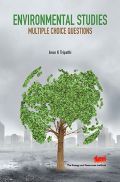Experimental Methods For Water Analysis by Dr. G. S. Wagh
Book Summary:
“Safe and acceptable” water: What quality of water is required? The water must be safe for domestic use, and a minimum quantity must be safe for drinking i.e. free from health hazards such as microorganisms, chemical substance, and radiology hazards. It must also be acceptable in terms of colour, odour and taste. Understanding the water quality and chemistry of water quality is a vast and complex field, practical water quality problem is not easy to straight forward. Analysts are trained to understand the complexity and diversity of chemical process.
The present book of water analysis divided into three chapters. Chapter I is about Introduction of water. Water resources, Contamination of water, Diseases from polluted water, Quality of water, Chemistry of groundwater, and Chapter II about field methodology i.e. Sampling objectives, Sampling site selection, Sample collection, Sample Labelling, Sample Preservation, Sample preparation, water quality standards for drinking purpose according to BIS and WHO. Chapter III contains method of estimation of various 36 parameters for establishing the water quality of particular water sample.
Audience of the Book :
This book Useful for B.Sc, M.Sc, BE, M.Phil & PH.D students.
Table of Contents:
1. Introduction
2. Field Methodology
3. Laboratory Methodology
Appendix


















